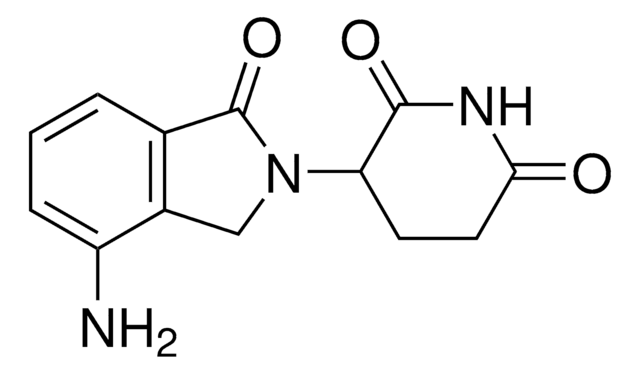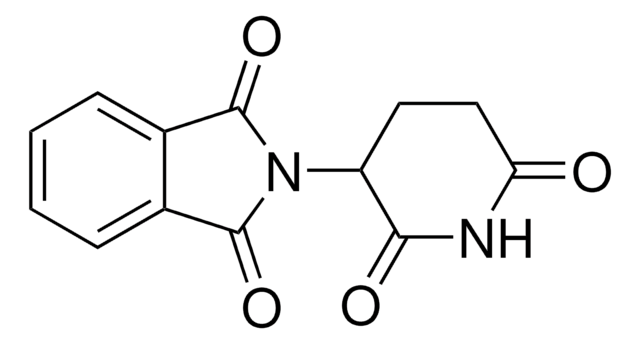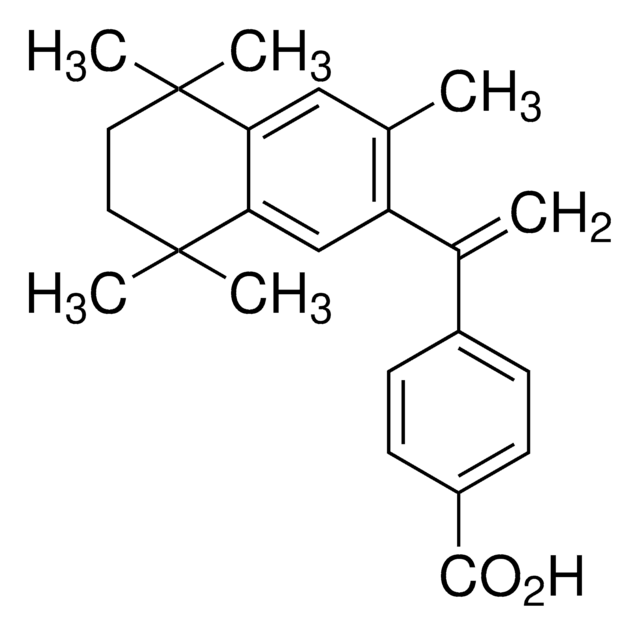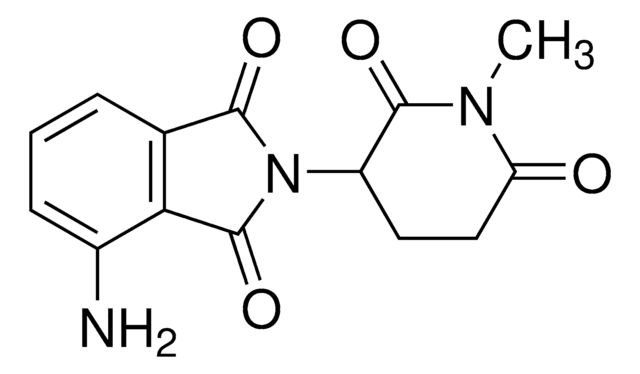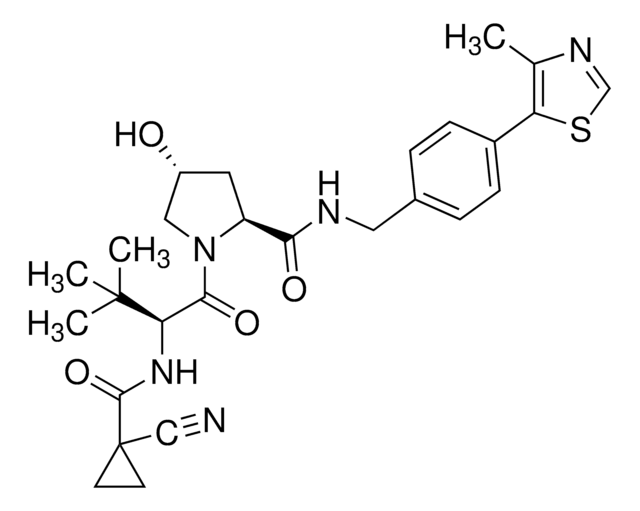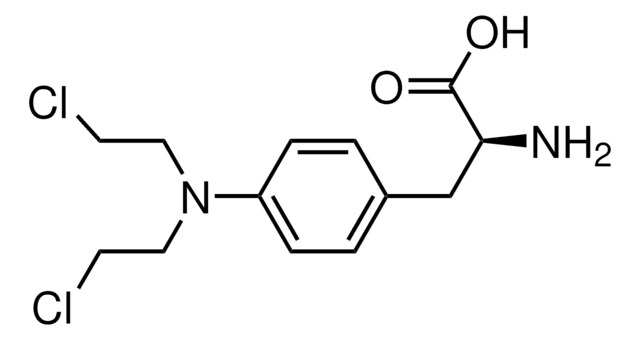SML2283
Lenalidomide
≥98% (HPLC), powder, cereblon binder
Synonym(s):
Lenalidomide, 1-Oxo-4-amino-2-(2,6-dioxopiperidin-3-yl)isoindole, 3-(4-Amino-1,3-dihydro-1-oxo-2H-isoindol-2-yl)-2,6-piperidinedione, 3-(4-Amino-1-oxoisoindolin-2-yl)piperidin-2,6-dione, 3-(4-Amino-1-oxoisoindolin-2-yl)piperidine-2,6-dione, CC 5013, CC-5013
About This Item
Recommended Products
product name
Lenalidomide, ≥98% (HPLC)
ligand
lenalidomide
Assay
≥98% (HPLC)
form
powder
reaction suitability
reagent type: ligand
color
white to beige
solubility
DMSO: 2 mg/mL, clear
storage temp.
2-8°C
SMILES string
O=C1N(C2CCC(NC2=O)=O)CC3=C1C=CC=C3N
InChI
1S/C13H13N3O3/c14-9-3-1-2-7-8(9)6-16(13(7)19)10-4-5-11(17)15-12(10)18/h1-3,10H,4-6,14H2,(H,15,17,18)
InChI key
GOTYRUGSSMKFNF-UHFFFAOYSA-N
Looking for similar products? Visit Product Comparison Guide
Biochem/physiol Actions
related product
Signal Word
Danger
Hazard Statements
Precautionary Statements
Hazard Classifications
Repr. 1B - STOT RE 2
Target Organs
Blood
Storage Class Code
6.1C - Combustible acute toxic Cat.3 / toxic compounds or compounds which causing chronic effects
WGK
WGK 3
Flash Point(F)
Not applicable
Flash Point(C)
Not applicable
Certificates of Analysis (COA)
Search for Certificates of Analysis (COA) by entering the products Lot/Batch Number. Lot and Batch Numbers can be found on a product’s label following the words ‘Lot’ or ‘Batch’.
Already Own This Product?
Find documentation for the products that you have recently purchased in the Document Library.
Customers Also Viewed
Our team of scientists has experience in all areas of research including Life Science, Material Science, Chemical Synthesis, Chromatography, Analytical and many others.
Contact Technical Service